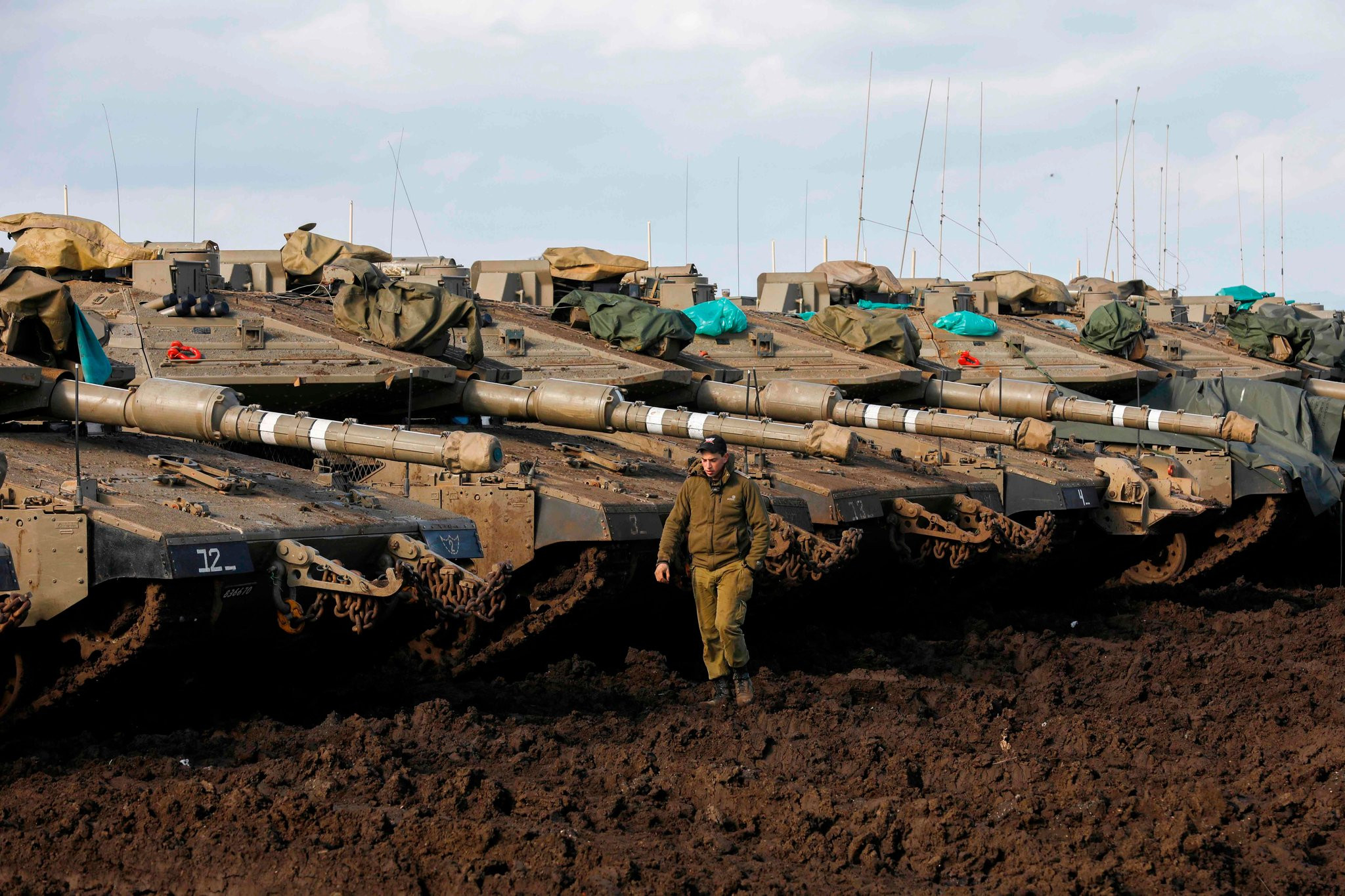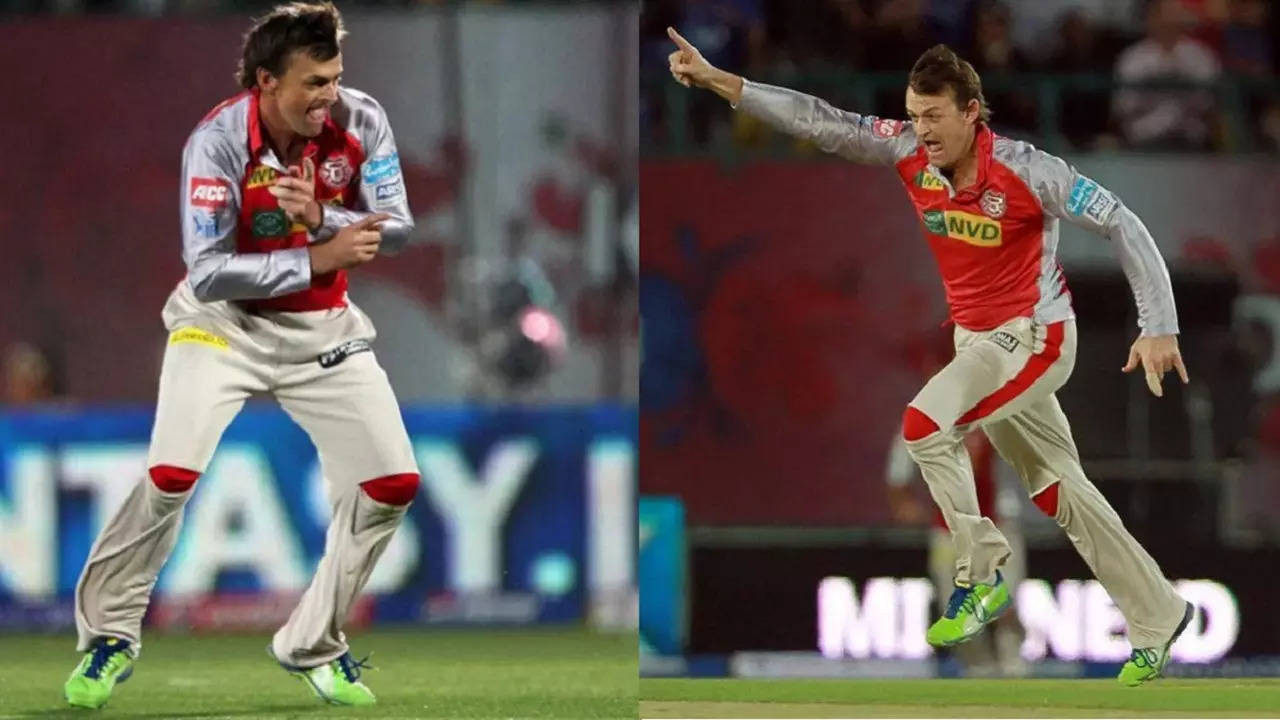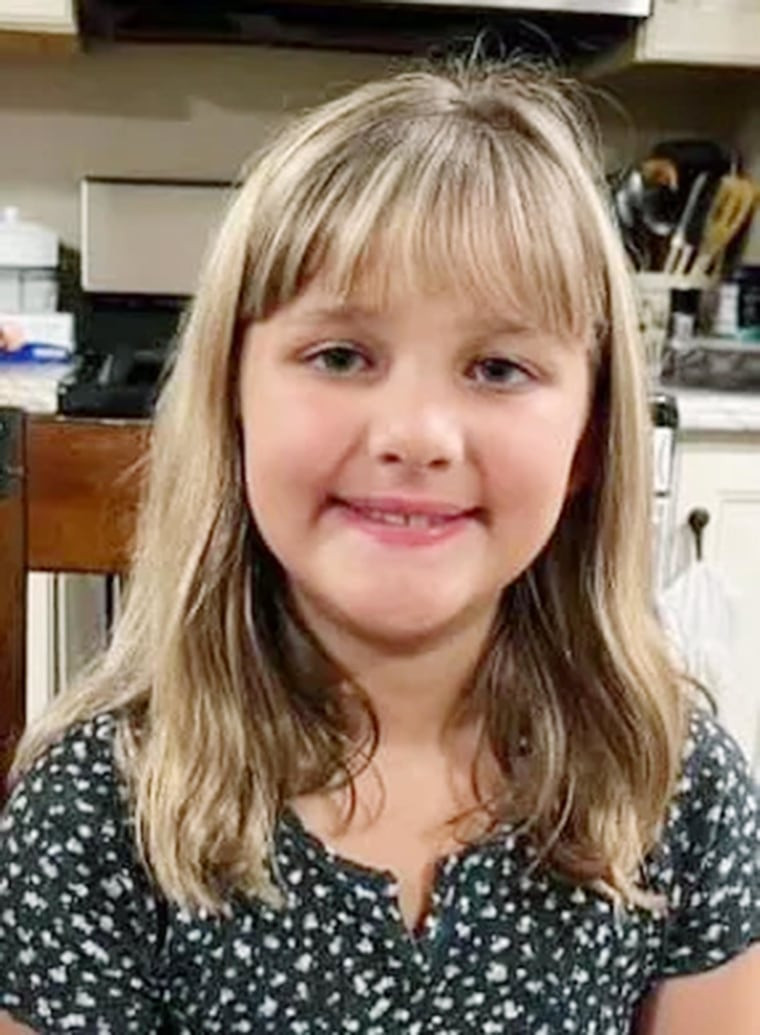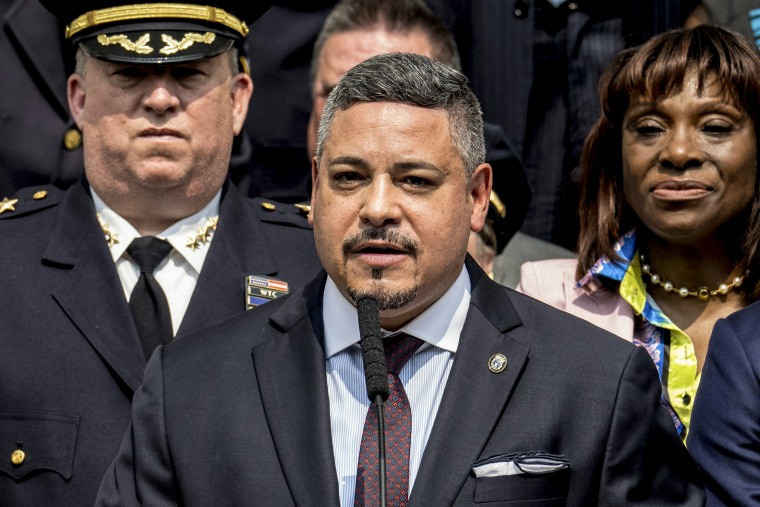The escalation that long felt inevitable arrived in a blaze of cross-border attacks over the weekend, but a Middle East on edge woke Monday having escaped all-out war — for now at least. The intense exchange between Israel and Hezbollah followed weeks of threats that stoked fears of a wider regional conflict. And on Sunday, Israel launched what it said were pre-emptive strikes on southern Lebanon after saying it had detected preparations for a “large-scale” attack by the Iran-backed militant group. Soon after, Hezbollah aimed hundreds of rockets and drones at Israel and claimed to have hit a military intelligence base near Tel Aviv — revenge, it said, for the assassination of a senior commander last month in Beirut. It was the heaviest fire the two sides have traded in 10 months of simmering conflict.
But both Israel and Hezbollah quickly signaled they were happy to leave things there, for now. Tehran, reiterating its own vow of “definitive” retaliation against Israel, touted the Hezbollah attacks as a success. And Washington, a staunch ally of Israel, voiced continued hope for efforts to secure a cease-fire in Gaza. “The exchange of fire alongside the Israeli-Lebanese border ... and the post-strike messages from both Israel and Hezbollah seemingly indicate neither is interested in an all-out war,” Avi Melamed, a former Israeli intelligence official and negotiator, said in an analysis shared with NBC News on Sunday. He said the round of violence could bring some “calm to the region” and “bring an end to the anxious period of waiting for rounds of retaliatory strikes that could very well have led to an all-out war.”
The escalation came amid ongoing talks in Egypt’s capital, Cairo, to negotiate a deal between Israel and Hamas that would end the Israeli military campaign in the Gaza Strip and secure the release of hostages held by Hamas in the Palestinian enclave. The high-level talks in Cairo ended Sunday without any final agreement, though they’re expected to continue at lower levels over the coming days in an effort to close remaining gaps in the negotiations, a U.S. official told NBC News. The talks “have been constructive and were conducted in a spirit on all sides to reach a final and implementable agreement,” the official said.
In an address to Lebanese civilians Sunday, Hezbollah leader Hassan Nasrallah said the group had delayed its response to commander Fuad Shukr’s assassination in order to allow negotiations to continue, and had no intention of targeting civilian infrastructure. Now, Nasrallah said, “Lebanon can rest.” But he warned that if the results of Sunday’s operation were “not sufficient, we reserve the right to respond.” Hezbollah, which has the largest missile arsenal of any nonstate actor in the world according to weapons watchdogs, has previously said it would halt its attacks on Israel if a cease-fire deal is struck.
Israel’s Pre-emptive Strike
Israel Defense Forces spokesman Nadav Shoshani said Hezbollah's attack might have appeared more subdued because of what Israel has described as its pre-emptive strike carried out by dozens of fighter jets. “Part of this attack looking not as big was our self-defense attack in the morning before their attack,” Shoshani told NBC News. Hezbollah said it ultimately fired around 320 Katyusha rockets toward 11 Israeli bases and military sites.
The Lebanese Health Ministry said at least three people were killed amid the Israeli strikes, with Reuters reporting that a fighter from the Hezbollah-allied Shia group Amal had been killed. During a news briefing Sunday, IDF spokesman Daniel Hagari said the Israeli military was aware of at least six militants killed in the strikes. He said that one IDF soldier died of injuries after the patrol boat he was in was hit by an Iron Dome interceptor or interception fragments.
Netanyahu’s Warning: “Not the End of the Story”
Israeli Prime Minister Benjamin Netanyahu warned at the beginning of a Cabinet meeting in Tel Aviv that Sunday's hostilities were “not the end of the story,” however. Iran, which has vowed its own retaliation against Israel for the assassinations of Shukr and Hamas political leader Ismail Haniyeh, has yet to act. The country’s new foreign minister, Abbas Aragchi, said late Sunday that Iran’s response “is definitive and will be measured and calculated.” And early Monday, his spokesman praised the Hezbollah attack as highlighting that Israel has lost its “deterrence power.” “Despite the comprehensive support of states like the United States, Israel could not predict the time and place of a limited and managed response by the resistance,” Foreign Ministry spokesman Nasser Kanaani wrote on X.
Ongoing Efforts to Return Displaced Residents
IDF Chief of Staff Lt. Gen. Herzi Halevi on Monday said the military was working to return displaced residents of northern Israel to their homes “as quickly as possible,” given daily attacks by Hezbollah. Halevi’s remarks came as the north was targeted by several drone attacks after a roughly daylong lull following Hezbollah’s massive bombardment early Sunday, with a much larger attack thwarted by preemptive Israeli strikes, and after he met with top American Gen. Charles Q. Brown, Jr.
Brown also met with Defense Minister Yoav Gallant, who told him that Israel and the United States must be “prepared at any time” to work together to prevent Iran’s efforts to attain nuclear weapons. In a video statement from northern Israel, Halevi said: “I just finished a visit with the chairman of the Joint Chiefs of Staff of the United States military at the Northern Command. We are strengthening operational cooperation in the face of challenges and threats in the Middle East.” “Israel is strong and defends itself on its own, but it is always good to have a strong ally by our side, who shares common values and interests with us,” the chief of staff said.
Halevi: “We Are Not Stopping”
Halevi then turned to Hezbollah’s efforts to avenge Israel’s killing of its top military commander in Beirut last month. “About a month ago, we eliminated the most senior military commander in Hezbollah, Fuad Shukr Mohsen, after Hezbollah killed 12 children in Majdal Shams,” Halevi said. “Yesterday, in a preemptive action, we prevented Hezbollah from another attempt to harm the citizens of the State of Israel, in the north and center [of the country]. The vast majority of the targets we destroyed yesterday were aimed at the north of the country,” he continued. Halevi said the IDF is “very determined to continue to harm Hezbollah, to eliminate more and more commanders, and to deprive it of assets and capabilities. We are not stopping.”
“Hezbollah has more capabilities and the work is not yet complete. Our mission is clear, to return the residents of the north to their homes in safety, and the IDF is working toward that end around the clock,” he said. “We are determined to return the residents of the north to their homes safely as quickly as possible.”
US Remains Committed to Defending Israel
As Brown visited, the Pentagon said the US continues to assess that the threat of attack against Israel by Iran and its proxy groups still existed after the Hezbollah attack, with Tehran vowing revenge for the assassination of Hamas leader Ismail Haniyeh hours after Shukr was killed in Beirut. Israel has neither confirmed nor denied a role in Haniyeh’s death. “I would point you to some of the public comments that have been made by Iranian leaders and others… we continue to assess that there is a threat of attack,” Pentagon spokesperson Air Force Major General Patrick Ryder told reporters.
Continued Drone Attacks on Israel
Brown’s meetings with Halevi and Gallant came hours after the IDF confirmed intercepting a “suspicious object” Monday morning that set off drone alerts in the southern Golan Heights. According to Army Radio, military officials believe the object was launched from Syria, a fairly rare occurrence. The suspected attack occurred near the Sea of Galilee, near the borders with Jordan and Syria, and far south of the area normally targeted by Lebanon-based Hezbollah. In the evening, several drones launched from Lebanon impacted in the Upper Galilee, while the Israel Defense Forces said additional UAVs heading toward the Western Galilee were mostly shot down by air defenses. There were no injuries in the attacks.
Israeli Airstrikes on Hezbollah Targets
The IDF meanwhile carried out numerous airstrikes on Hezbollah targets in southern Lebanon, and also reportedly targeted a Hamas official in the coastal city of Sidon. Lebanese media named the target of the alleged Israeli drone strike as Nidal Hleihil. According to the Annahar outlet, two missiles struck Hleihil’s car as he left his house and headed to his vehicle. The report said he was seriously injured in the strike.
Hezbollah Launches Rockets from Civilian Areas
Also Monday, the military published several infographics that it said show Hezbollah rocket launch sites used in Sunday’s attack, during which some 230 rockets and 20 drones were fired from Lebanon. According to the IDF, 90 percent of the rockets were fired from civilian areas. “The Hezbollah terrorist organization places its terrorist infrastructure in the middle of the civilian population, using Lebanese civilians as human shields,” the military said.
The Future of the Conflict
While both sides have signaled a willingness to de-escalate for now, the ongoing tensions and threats from Iran and its allies raise significant concerns about the long-term outlook for the region. The current situation underscores the volatile nature of the conflict and the potential for a wider escalation in the future. The international community, particularly the US, will be closely watching the developments in the coming days and weeks, seeking to prevent a full-blown war and facilitate a sustainable solution to the conflict.

















